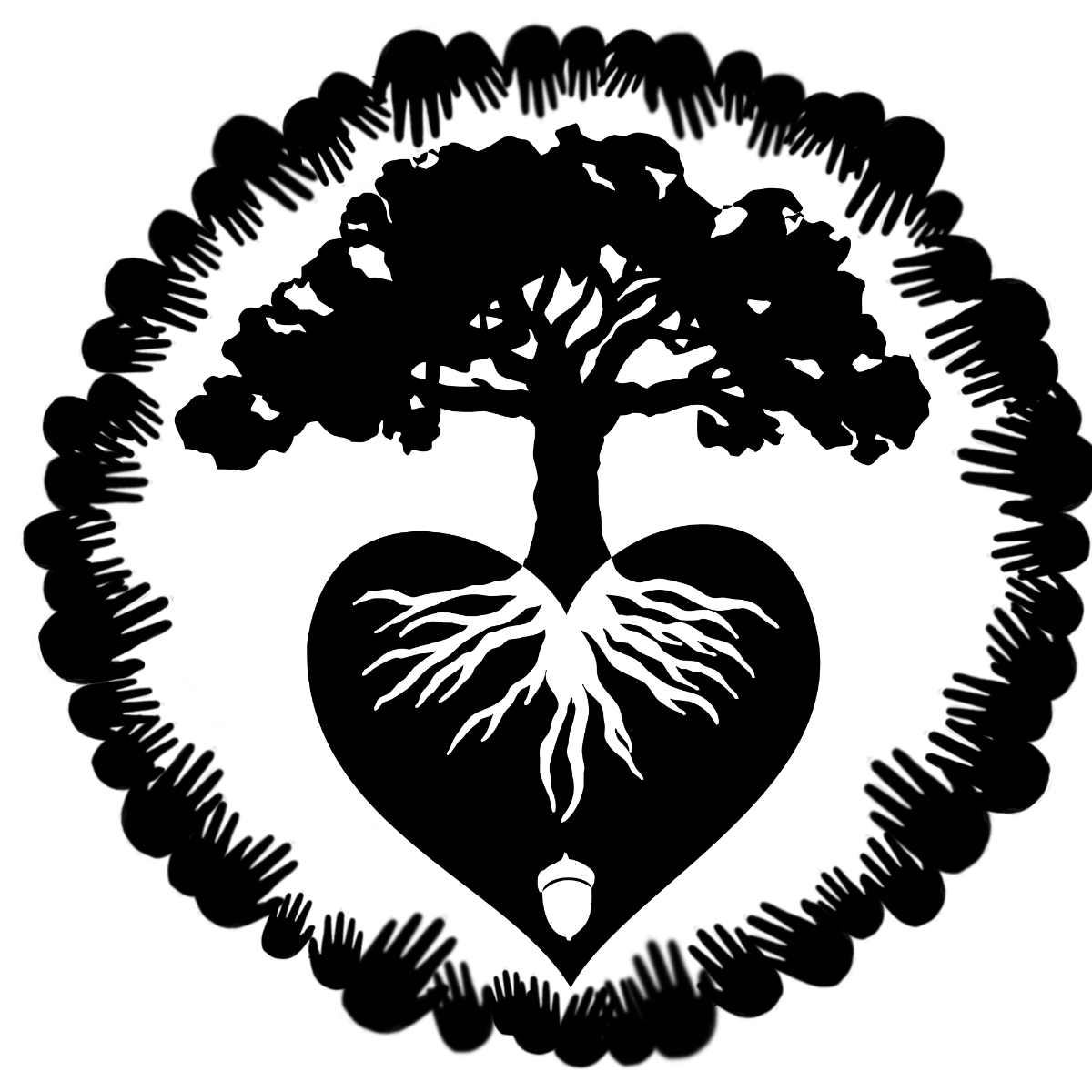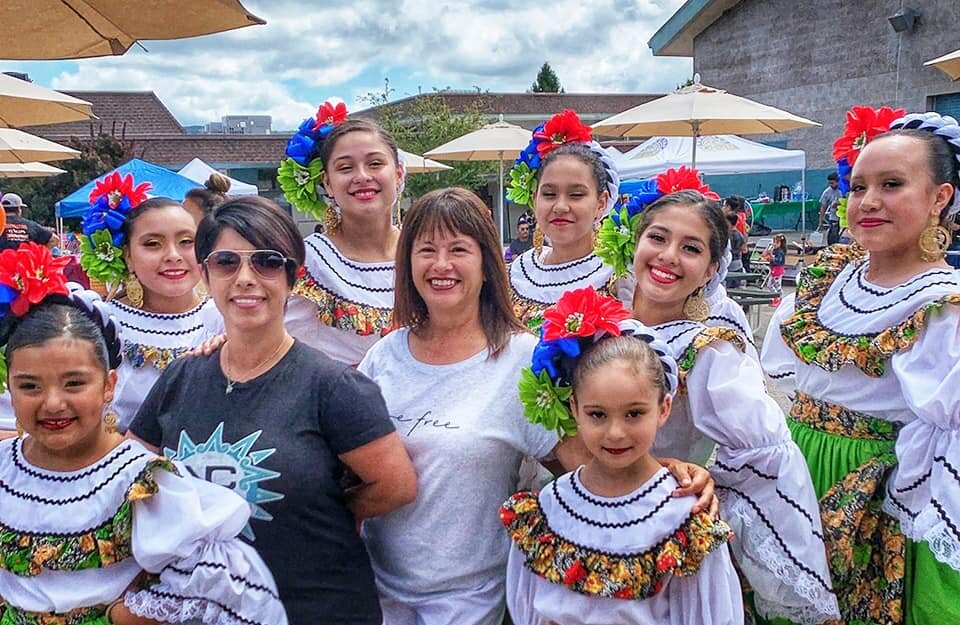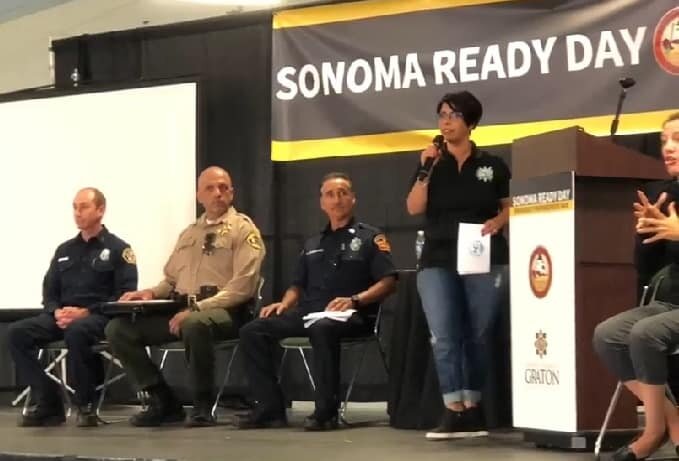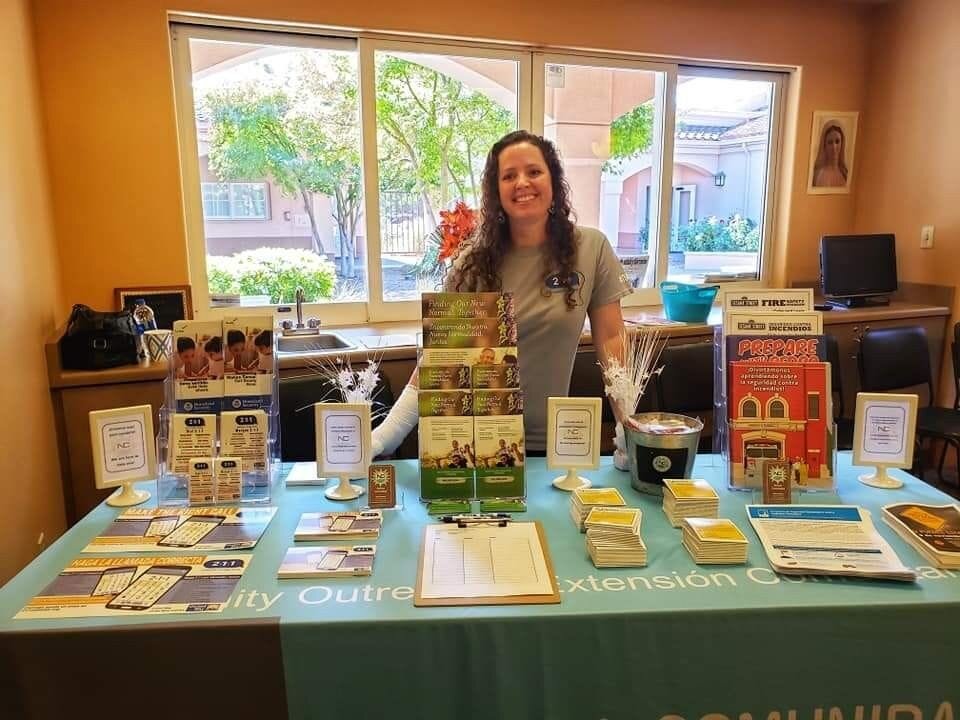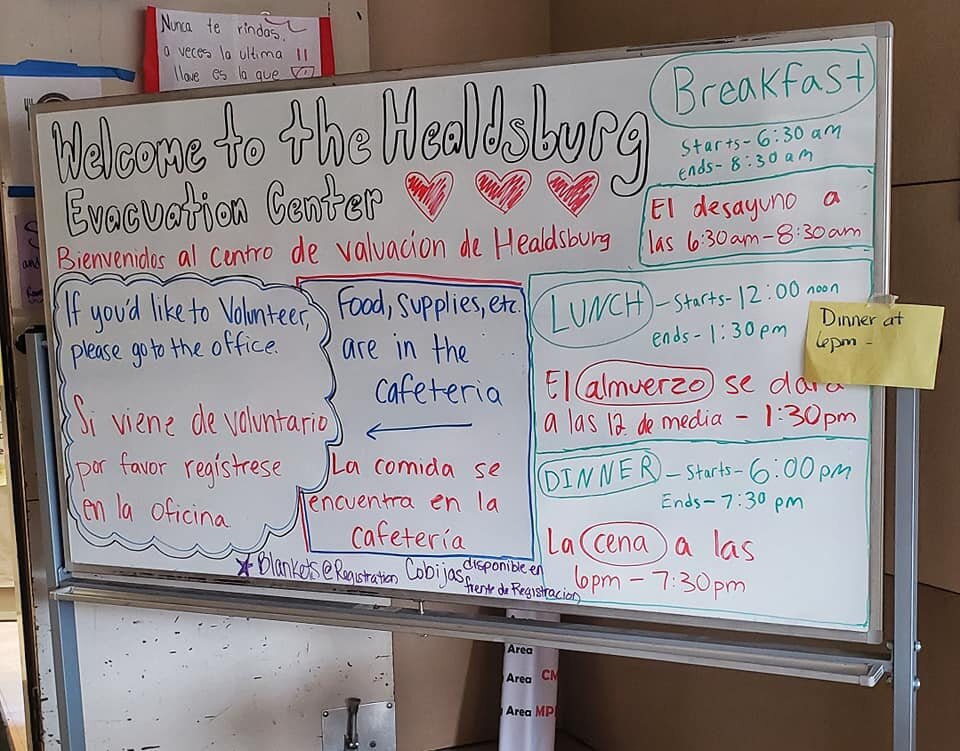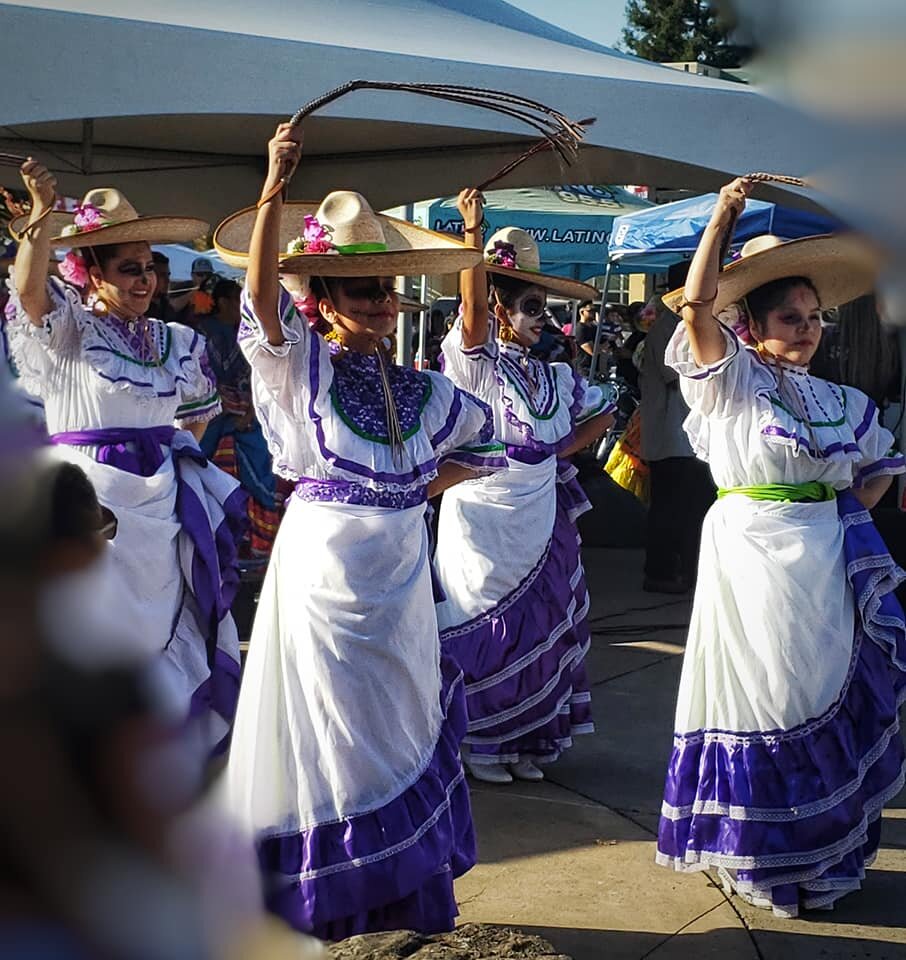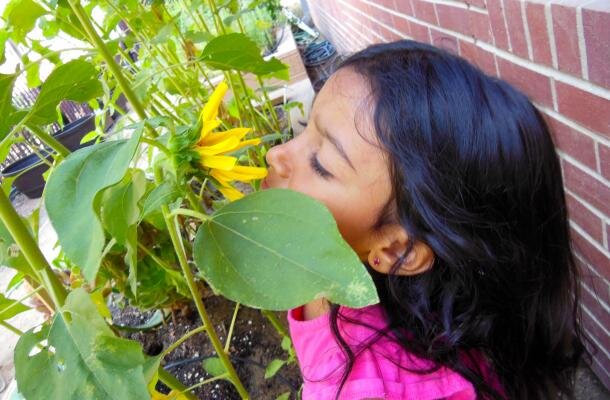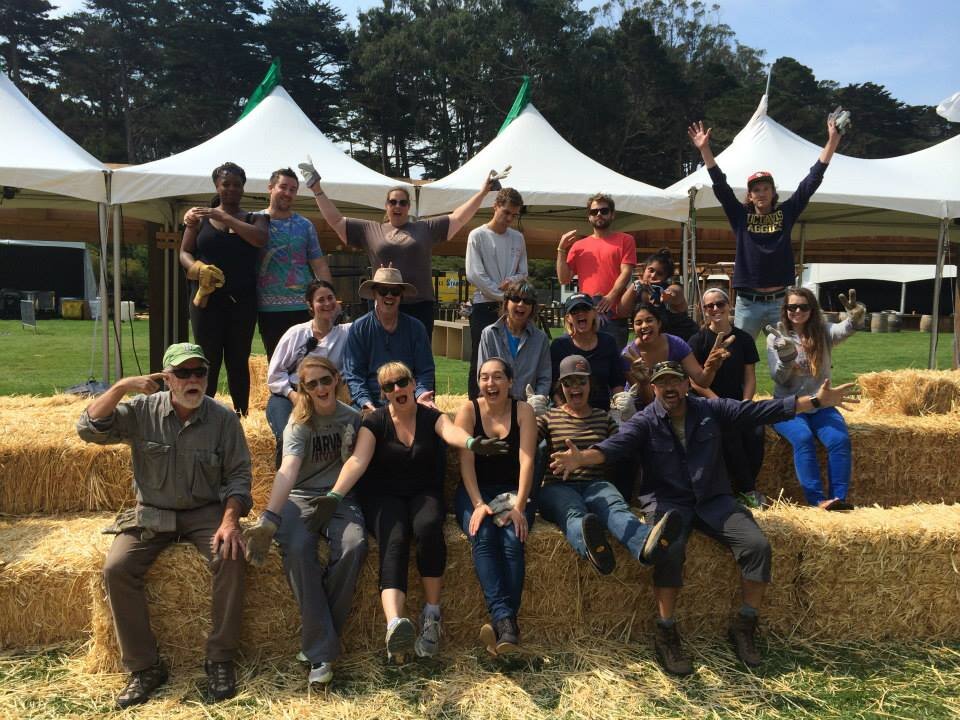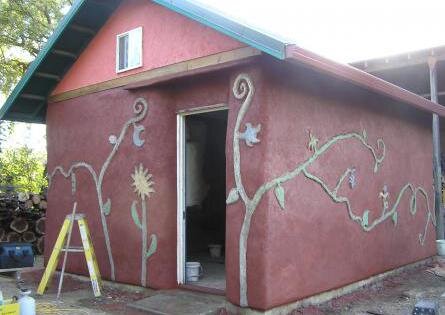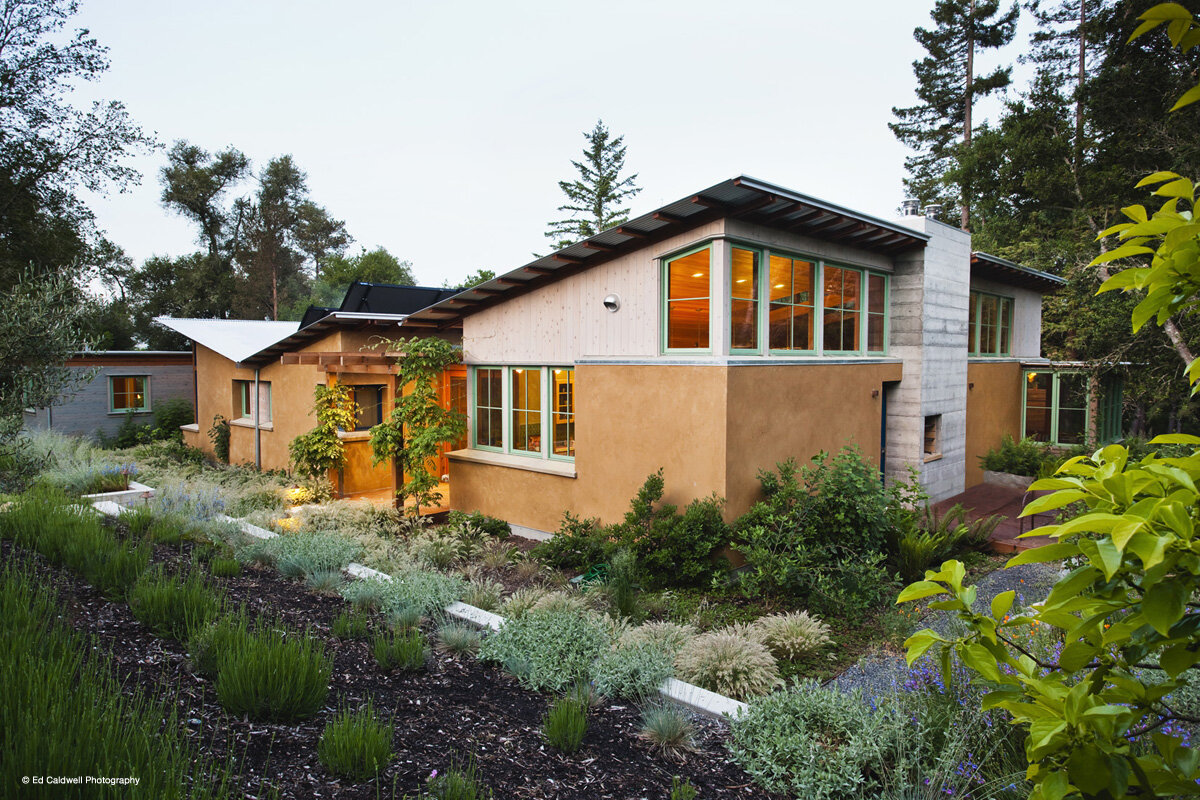LONG TERM RESILIENCY
Supporting community-based organizations and projects that are fostering long term resiliency
Puertas Abiertas Community Resource Center works hand in hand with Latinos to inspire and achieve healthy living, self-sufficiency, and opportunities for leadership and community engagement. Our vision at Puertas Abiertas is a healthy, integrated community where there is no underserved population and where everyone has equitable access to services, resources, and civic participation. At Puertas Abiertas, we proactively solve problems and support our community’s rights to essential services. Expanding literacy, creating self-sufficiency, increasing well-being and productivity for Latinos means a happier, healthier, more economically vibrant community for everyone! Puertas Abiertas is a 501(c)(3) nonprofit organization in Napa that has been operating since 2005. We provide a variety of health, social service and education services that have a significant impact on family interaction, financial stability, civic involvement, and educational success. Our staff is bilingual/bicultural and trusted by our Spanish speaking community to provide accurate information.
The Sonoma Ecology Center works to address challenges related to water supply and quality, open space, rural character, biodiversity, energy, climate change, and a better quality of life for all residents. The Fire Smart, Water Wise, and Wildlife Friendly Landscaping project will build on Sonoma Ecology Centers work assisting Sonoma Valley landowners following the October 2017 firestorms. Immediately following the firestorm we mobilized volunteers and staff to to protect property and streams from toxic ash runoff. This project will also build on our Neighbors Working Together (NeWTs) program, which is an outreach and education program to change the water-related behavior in the Sonoma Creek watershed. Since 1990, we’ve worked to increase appreciation and stewardship of Sonoma Valley’s natural heritage and create measurable benefits in areas of land, water, climate change and biodiversity. Vision: We envision a future where people, land, water, and wildlife thrive. Mission: Our mission is to work with our community to identify and lead actions that achieve and sustain ecological health in Sonoma Valley. Our programs include: Research to understand the condition of Sonoma Valley and the Sonoma Creek watershed, which informs projects and priorities for the ecological health of the region. Education to support sustainable practices and create future leadership for Sonoma Valley. Restoration to repair damage to waterways, natural habitats, and publicly accessible open spaces. Preservation to protect our natural heritage and public lands. Data & Mapping (GIS) Services using technology to manage and share environmental information for greater efficacy and impact.
Nuestra Comunidad (NC) passionately believes in improving the health, safety and well-being of our community. Our vision is to equip the public with vital information, and hands on training, in the use of the 9-1-1 emergency response system, disaster preparedness and personal safety. In support of our mission Nuestra Comunidad will work with local agencies to bring the latest information and training to our community members. Our goal is to help members of our community to prepare for their next emergency, whether it is calling 9-1-1 for a loved one having a medical emergency or preparing for the next major natural disaster. During an emergency seconds matter; being knowledgeable and prepared can make all the difference. We can customize our presentations and trainings to fit the need of your family, community group, school, or organization.
Daily Acts - Creating Just, Resilient Communities by Re-landscaping the Rebuild exists to be a catalyst for personal and community transformation through education, action and partnerships, which build leadership and local self-reliance. This project will build on existing partnerships and resources such as scalable landscape design templates; which Daily Acts helped develop to support the rebuild. Facilitating community-powered landscape transformations to affect systemic change in lives, neighborhoods and cities, has been a core strategy for building skilled and engaged citizens and sharing models of resilience. Furthermore, it will be a cornerstone of the next phase of our strategic focus, which is to greatly amplify our reach and impact by establishing a formal network of Resilient Homes, to more rapidly share resources, empower residents and create practical demonstration sites. Daily Acts is a sustainability non-profit that inspires action to create more nourishing, connected, and resilient communities. Grounded in the core belief that every choice you make matters, we take a heart-centered approach to personal and community transformation. Our education programs, action campaigns, and strategic alliances connect people to each other and to their own power to grow food, conserve resources and build local resilience.
The Sonoma County Healers Network created a monthly Healers’ Sanctuary as a response to the wildfires, offering free drop-in clinic for the community to connect, decompress, relax and receive services they typically would not due to either lack of funds or lack of exposure to the diverse array of healing methods available. This safe and supportive space provides volunteer practitioners an opportunity to collaborate in heart-centered relationships, while building confidence in their healing practice. Joining healing arts practitioners together through an integrative healing action network to offer a safe healing space to all. Educating and supporting Traditional Healing Practitioners to assist with the integration of whole person and spiritual care within the healthcare system.
The Friends of the Petaluma River celebrates the Petaluma Watershed through education and stewardship; because every great River needs a true Friend. Much of our work is focused on conservation and education surrounding this sensitive habitat, we believe that celebration plays a large role in our mission. Through events at the River Heritage Center, like the Transhumance Festival, family programming around the Watershed and access opportunities for the public we bring our Watershed to life. The Transhumance Festival brings the outer landscapes to the village center. We want to bring awareness and show the connectivity of how our food choices affect our landscapes, local economies and waterways. Education by the local grazing collective on prescribed herbivory, fire ecology and abatement, wild tending, regenerative grazing, and land ethics; aiming to create a space for the development of our ecological lexicon; a space of education and play both for children and adults alike; and to enliven the art of grazing. The morning will be dedicated to this act of shepherding called “transhumance - where the Grazing Collective will graze Steamer Landing Park Peninsula for fire protection and ecological health. Lunch will be provided by our local butchers at Thistle Meats, the day will be dedicated to ecological literacy, workshops, fibershed-inspired market place.
The School Garden Network grows healthy students, families, schools, and communities through garden-based education. Since its inception in 2003, SGN has awarded over $260,000 in grant funding to 60 local schools. Fundraising and outreach for these programs continue to be top priorities. Our Schoolyard Habitat Program to date has awarded over $80,000 in installation funding, and provided a total of 720 hours of consultation to 18 schools to make sure these projects were ecologically sound, well supported, and integrated into classroom instruction. We allocated $20,000 dollars to 7 local schools deeply impacted by the 2017 wildfires and 2019 flooding. Other projects include: Garden Coordinator Gatherings- We host seasonal gatherings as a opportunity for the school garden community to come together to share experiences, best practices, recipes, curriculum, activities, lessons and more. Healthy Roots-We provide school garden and nutrition mentoring, nutrition workshops for students & families, local farm tours, consultations, curriculum support, and more. Heirloom Seed Expo- Organize Kids Pavilion where school gardens are on displays, coordinate transportation stipends for schools, and organize the silent auction. School Partner Program- Free opportunity for schools to networking within the school garden community, access to free seeds & plants, and receive discounts from local business partnerships and on SGN workshops. School Garden Apprenticeship – A summer program where teens obtain training and employment by participating in the Water Wise irrigation installations and providing garden maintenance to schools. SchoolYard Habitat– In partnership with US Fish and Wildlife Services, SGN provides consulting and funding for habitat projects at school sites. WaterWise Mini-Grants– In partnership with Harmony Farm Supply, we offer eligible schools free irrigation design, installation support and up to $400 in funding for a drip irrigation system.
The Mendocino Forest Reciprocity Collective restores forests to vibrant fire resilient ecosystems for the health of the planet benefiting human and wildlife communities, thinning small diameter trees to unburden forests of catastrophic fire fuel loads for stable and diverse habitats and long-range carbon sequestration, utilizing the sales of small poles, the abundant byproduct of forest restoration and a superior building material for fire-safe housing. The focal strategy of FRG for improving ecosystems and resiliency in the western region is collaborating with First Nations, land-owners, and local and state agencies in the utilization and promotion of small diameter trees thinned from overburdened forestlands, providing land stewardship services and assistance, value added timber frame homes, and renewed local economic activity. Today’s wildfires are ascending into devastating crown and canopy fires, taking down the taller mother trees. Prior to European colonization of the Americas, indigenous peoples tended the forestland of California, including controlled burning - fires were part of the environmental cycles and maintenance of wildlife habitats that sustained the people's cultures and economies. The reintroduction of prescribed burns prevent overgrowth of the forest’s understory, allowing more water and nutrients for the healthy bigger trees, and fostering habitat for the species dependent upon fire to regenerate. Today’s catastrophic wildfires burn entire forests, diminishing California’s largest source of carbon sequestration, pumping massive amounts of carbon dioxide (CO2) into the atmosphere. Many of the global challenges we face today are caused by poor incentives. The goal of the Forest Reciprocity Group is to prove that when incentives are properly aligned, and the spirit of human innovation is unleashed, ecological restoration, social development and sustainable local economies can be achieved hand-in-hand. A call to all foresters, First Nations, forestland owners and home builders.
The California Straw Builders Association is a non-profit organization whose members are designers, contractors, owner builders, and people interested in straw building. We serve as a clearinghouse for information and as a network of resources. Since 1996, our members have worked to develop testing and to improve techniques and standards for building with straw, in order to gain its acceptance by municipalities, officials, lenders, and insurance companies throughout California. There are now many fine examples of permitted straw bale homes throughout the state, as well as a number of commercial buildings, that stand as a testament to this pioneering work. CASBA members have not only broken new ground at home. Individually, through affiliations, some have been instrumental in bringing straw bale building to far-flung places around the globe: consulting, teaching, building, and collaborating – on projects to combat pollution, conserve resources, rebuild after natural disasters, and improve community services and housing in impoverished areas. We are a very diverse group, we share similar hopes, dreams, and beliefs for building a better world through the wise use of natural materials, intelligent design, and stewardship of our resources. This is what binds us together and gives us a common language and spirit.
The Gardens Project of North Coast Opportunities seeks to relieve hunger and inadequate nutrition throughout Mendocino and Lake Counties by creating access to community-based food production and local, nutritious food. We work with local government and private landowners to lease underutilized land around low-income neighborhoods for the creation of new community gardens. Nationally, 1 in 7 Americans struggles to find access to fresh, healthy affordable food. In Mendocino County, 1 in 6 residents doesn’t have enough to eat, and in Lake County 1 in 5 residents doesn’t have enough to eat. People in Lake and Mendocino Counties experience hunger at higher rates than the national average because rural areas like ours have high unemployment rates, low-wage jobs, and lack of transportation to reliable food sources. We help people to E.A.T. by Empowering families to design and manage community gardens, creating Access to new land for food production, and Teaching all people in our community how to grow food. Highlights of our work: Since our founding in 2007, The Gardens Project has established 38 successful community and school gardens. These gardens produce 28,470 pounds (more than 14 tons!) of produce, and provide vegetables to more than 3,000 people every year. Over 200 people attend our FREE workshops on food production and healthy eating in both Mendocino and Lake Counties each year. Since 2011, we’ve trained more than 75 gardeners to become positive leaders in their communities to ensure effective management and sustainability of community gardens.
Seigler Springs Community Redevelopment Association | SSCRA's purposes are: To establish one or more neighborhood associations to cooperatively redevelop affordable homes and other properties destroyed by the Valley Fire in Lake County California in September of 2015, which properties may also include additional associated structures and facilities. To establish new neighborhood associations to cooperatively develop affordable homes and other properties in Lake County California. To provide financial assistance and volunteer services, such as counseling, job references and public agency referrals, to individuals and families suffering from dislocation and loss due to the Valley Fire in Lake County California in September 2015. To promote the most advanced methods of sustainable community development and community resilience, including whole-systems thinking and field theories in ecology, community organizing, sacred architecture, integral healing, intentional community and group process, that are at the core of the most advanced community development practices today.
